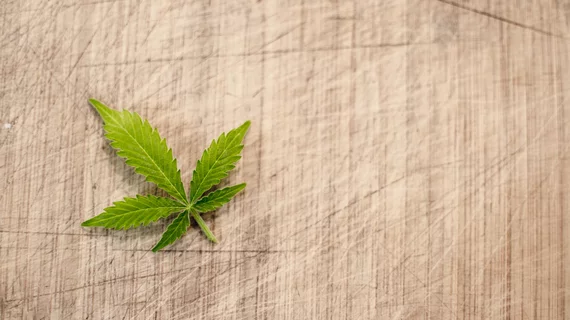fMRI reveals how cannabis helps patients at a high risk of psychosis
Cannabidiol (CBD), a major constituent of cannabis, has been found to have a therapeutic effect on patients with psychosis. That therapeutic effect may be a result of how CBD partially normalizes alterations found in the brains of patients at a high risk of psychosis, according to new fMRI research published in JAMA Psychiatry.
“Although there is good evidence that CBD can have beneficial effects on psychotic symptoms, how these effects are mediated in the brain remains unclear,” wrote co-author Sagnik Bhattacharyya, MBBS, MD, PhD, of King’s College in London, and colleagues. “The present study sought to address this issue by examining the effects of CBD in individuals at clinical high risk (CHR) of psychosis. Individuals at CHR typically experience clinically significant psychotic symptoms that are qualitatively similar to those seen in patients with frank psychosis.”
The authors examined the brains of 33 patients at a CHR of psychosis and 19 healthy controls. Data was collected from July 2013 to October 2016. Sixteen participants at a CHR of psychosis received a single oral dose of CBD, and the other 17 participants received a placebo. Control participants did not take the CBD or the placebo.
All participants were then asked to perform a basic learning task, which included encoding and recall.
“During encoding, participants were shown word pairs and asked to say yes or no aloud after each pair to indicate whether they went well together,” the authors wrote. “The same word pairs were presented in the encoding condition four times so that the associations could be learned over repeated blocks. During recall, one of the words from previously presented pairs was shown, and participants were asked to say the word that it had previously been associated with.”
Overall, the authors found that there were no significant differences in task performance between the groups. However, looking at the fMRI data, the placebo group did show greater activation than the control group in numerous parts of the brain. Brain scans of participants in the CBD group, meanwhile, showed that some of that greater activation seen in the placebo group had been reduced.
“This study suggests that a single dose of CBD in an experimental setting may partially normalize dysfunction in the medial temporal lobe, striatum, and midbrain in individuals at CHR of psychosis,” the authors concluded. “It would be useful to now investigate whether similar modulatory effects are evident in patients who have received a course of treatment with CBD in a clinical setting.”

